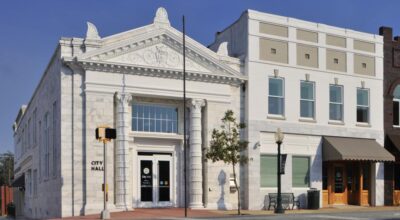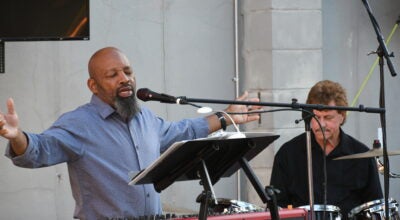Make it Count: What to know for the 2020 US Census
Published 8:25 pm Tuesday, January 21, 2020
|
Getting your Trinity Audio player ready...
|
Darrell Moore, Executive Director for the Center for South Georgia Regional Impact, spoke to City Council on Tuesday night about the 2020 Census and the importance it has in rural communities for funding purposes.
The Census is conducted every 10 years and impacts the number of elected officials for state representation purposes, the school board, city council, county commission and planning decisions for community services. In addition, the Census impacts the funding of 55 state funded programs, accounting for $675 billion in federal funding.
For the first time, the Census will be conducted online this year. Moore realizes this will be a challenge for especially rural communities, who may not have high speed Internet in their homes. For this reason, the state has just allocated $1 million to state libraries so they can help people fill out their Census information. Moore said Farm Bureau has also offered to have tablets that people can use to fill out information.
Moore listed several reasons, people may not be willing to fill out a Census form, but strongly encouraged City Council to help residents realize the importance of their form. Moore has heard in the past that people worry about sensitive information being given to the government, but Moore assured City Council that no personal information, such as a social security number, would be asked for.
The Census asks nine questions: How many people live in this home as of April 1, 2020? Were there any additional people staying at your home on this date? Do you own or rent your home? What is your phone number, name, age, sex, race, and do you ever stay or live somewhere else?
The Census will send out a postcard that explains how to log on and fill out the Census information. There will be five mailings of postcards. The first mailing will be March 12. There will be two additional mailings following that. If residents have not gone online to fill out the Census by the fourth mailing, they will receive a written form they can mail back in or a toll-free number to call that has 18 different languages to give their Census information. After the fifth mailing, residents who have not filled out the Census will have visits from Census workers at their home. Census workers will come to the home a total of six times at various hours to ensure the information has been filed correctly.
“If you don’t want someone coming to your home, you have three options to fill it out before then,” Moore said.
Residents should realize they will never receive an email from the US Census. If they do it is fraudulent, Moore said.
All of the data provided helps potential business owners and others decide if they should move to a community or open up shop there, which is why it’s so important to fill out accurate information.
While there are multiple marketing reminders throughout the region to remind everyone to fill out the Census, they are also actively inviting people to become part time Census workers and join the Census Complete Count Committee, especially locals who know the neighborhood and area well.
“They are in a massive hiring phase right now,” Moore told everyone.
Through this committee and additional workers, Moore hopes to ensure no one is overlooked.
He finished by encouraging everyone to be on the lookout for upcoming mail about the Census and participate in the count this year.





